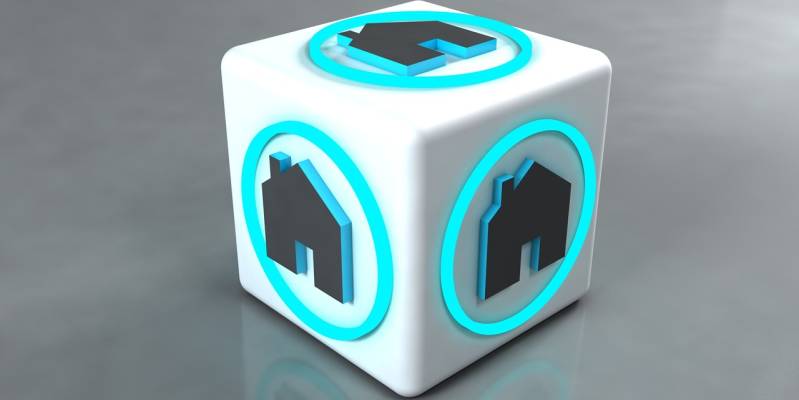
How Technology is Revolutionizing the Real Estate Industry in Spain
How Technology is Revolutionizing the Real Estate Industry in Spain
The real estate industry in Spain, much like the rest of the world, is undergoing a significant transformation driven by technological advancements. From enhancing your Spanish property search experiences to streamlining transactions, technology is reshaping every facet of the market. Here’s how:
1. Enhanced Property Search and Virtual Tours in Spain
In today's digital age, the majority of property searches in Spain begin online. Leading portals like IDEALISTA, Fotocasa, and Habitaclia provide comprehensive listings that can be explored from the comfort of one's home. High-resolution images, detailed descriptions, and interactive 3D walkthroughs allow potential buyers and renters to get a true feel for properties without needing to visit in person.
The COVID-19 pandemic further accelerated this trend. With lockdowns and travel restrictions, virtual tours became not just a convenience but a necessity. Real estate agencies in Spain quickly adapted, using video viewings to continue selling properties. This method proved so effective that it remains popular today, offering a broader reach and greater flexibility for international buyers.
2. Data-Driven Decision Making
Big data and analytics have become pivotal in the real estate sector. Real estate agencies and investors in Spain now leverage data to understand market trends, property values, and consumer preferences. These insights enable more accurate property valuations and better investment strategies. For instance, predictive analytics can forecast market shifts, helping investors make informed decisions about where and when to buy.
Moreover, data analytics enhances the customer experience. By analyzing browsing patterns and preferences, Spanish real estate portals and platforms can offer personalized property recommendations, making the search process more efficient for users.
3. Smart Homes and IoT Integration
The rise of smart homes is another significant trend in Spain's real estate market. These homes are equipped with Internet of Things (IoT) devices that offer enhanced security, energy efficiency, and overall convenience. From smart thermostats that optimize heating and cooling to automated lighting systems that adjust based on occupancy, these features appeal to modern buyers who value technology.
Smart homes also contribute to sustainability, a growing concern among consumers. Energy-efficient appliances and systems reduce utility costs and environmental impact, adding significant value to properties.
4. Blockchain and Secure Transactions
Blockchain technology is revolutionizing real estate transactions by providing a secure, transparent, and immutable ledger. This innovation minimizes fraud and ensures the integrity of property records. In Spain, blockchain is streamlining processes such as title transfers and contract management, making transactions faster and more secure.
For example, blockchain can automate the verification of property ownership and history, reducing the time and paperwork involved in real estate deals. This technology also facilitates smart contracts, which automatically execute terms when conditions are met, further simplifying the buying process.
5. Digital Marketing and Social Media
Digital marketing has transformed how real estate is marketed in Spain. Real estate agents now use platforms like Instagram, Facebook, and LinkedIn to reach a broader audience. These platforms offer powerful tools for targeting specific demographics, ensuring that marketing efforts are both efficient and effective.
Engaging content, such as virtual open houses and interactive property showcases, captures the interest of potential buyers. Additionally, social media allows for direct interaction with clients, fostering a more personal connection and immediate feedback.
6. AI and Chatbots
Artificial intelligence (AI) and chatbots are enhancing customer service in the real estate sector. These technologies provide instant responses to inquiries, schedule property viewings, and offer personalized property recommendations based on user preferences. In Spain, AI-driven tools are helping agencies manage leads more effectively and improve client engagement.
For instance, chatbots can handle multiple inquiries simultaneously, providing quick answers and freeing up human agents for more complex tasks. AI can also analyze large datasets to identify trends and predict market movements, giving agencies a competitive edge.
7. Virtual and Augmented Reality
Virtual Reality (VR) and Augmented Reality (AR) are increasingly being used to offer immersive property tours. VR allows potential buyers to explore a property in a fully interactive environment, while AR can overlay information and visuals onto the physical world, enhancing real-world property viewings. These technologies are particularly useful for new developments and off-plan properties, giving buyers a realistic sense of what to expect.
8. Online Mortgage and Financing Platforms
Securing a mortgage can be one of the most daunting aspects of buying a property. Online mortgage platforms in Spain are simplifying this process by offering comparison tools, online applications, and instant pre-approvals. These platforms use algorithms to match buyers with the best financing options, making home loans more accessible and transparent.
Conclusion
Technology's impact on the real estate industry in Spain is undeniable. As advancements continue to evolve, they promise to further enhance efficiency, transparency, and customer satisfaction. For real estate professionals, embracing these technological trends is not just an option but a necessity to stay competitive in an increasingly digital world. From virtual tours and smart homes to blockchain transactions and AI-driven customer service, the future of real estate in Spain looks both innovative and promising.










